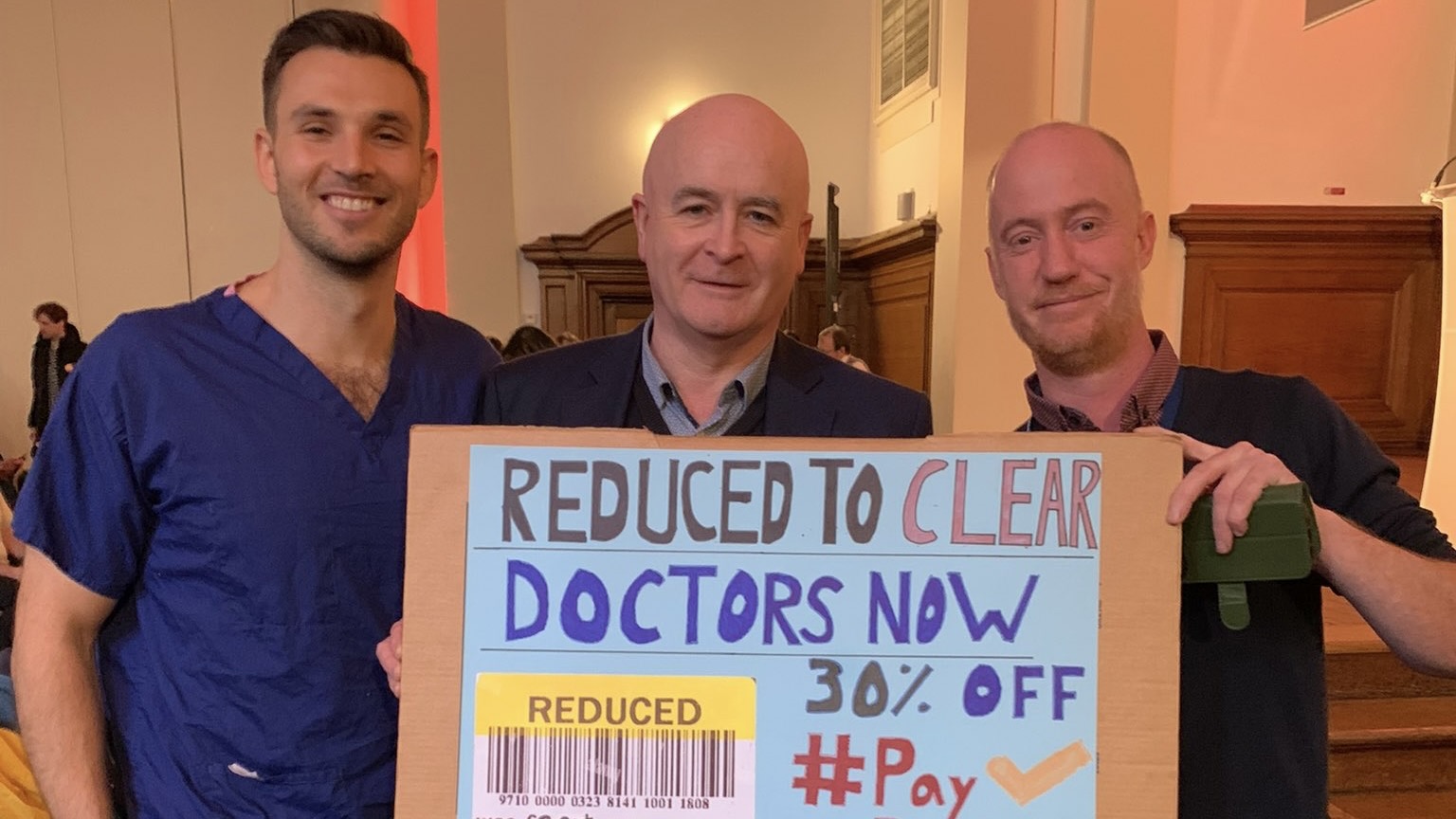On Wednesday, December 20, the junior doctors in England initiated a three-day industrial action after the government failed to present a convincing offer on pay restoration, missing yet another deadline agreed for the beginning of the month.
The Junior Doctors Committee of the British Medical Association (BMA) has announced another strike lasting 6 days starting from January 3, 2024, if the government does not return to the negotiating table with a serious offer. If the strike proceeds, it will mark the longest stretch of industrial action since the junior doctors’ dispute began over a year ago.
Before December 20, the doctors had already been on strike for 28 days throughout the year, protesting pay erosion and the government’s reluctance to improve the working conditions of this group of health workers, one of the largest in the National Health Service (NHS). Their main demand remains full pay restoration, amounting to approximately 30% salary increase to make up for the income lost since 2008.
Read more: Junior doctors in the UK begin strike over pay restoration
Despite Health Secretary Victoria Atkins attempting to shift the blame for the failure of the latest round of negotiations onto the BMA’s junior doctors’ representatives, committee co-chairs Robert Laurenson and Vivek Trivedi explained that it was the government that failed to meet the set deadlines and is now refusing to resume negotiations unless the strikes are called off. Junior doctors are willing to resume the conversation at any time, Laurenson and Trivedi stated in a release. They pointed out, “It is the Government’s insistence that they will not talk while strikes are scheduled that is blocking progress and wasting unnecessary time.”
As the strike continues, the discourse surrounding the junior doctors’ industrial action is changing compared to earlier instances. Some hospital management representatives have warned about fractures in the unity among physicians, with resident doctors allegedly growing tired of their junior colleagues’ activities and having to shoulder additional workload.
Similarly, charities and patients’ associations have begun expressing concerns that junior doctors are acting against the best interests of patients by insisting on striking during a period when the NHS is already grappling with an increasing influx of flu cases and other ailments related to the cold season.
Yet, the junior doctors persist in emphasizing that their action is rooted in the desire to save the NHS by ensuring adequate working conditions for its staff and thereby providing better care for patients. The strike also continues to enjoy the support of other trade unions and thousands of their members. “In our February ballot, 98% voted for the strike action on a 77% turnout. This mandate was reconfirmed in August when 7,000 more junior doctors voted yes than had done in February.”
The junior doctors have announced they will continue striking until the next general election if necessary, potentially extending their industrial action into late 2024.
People’s Health Dispatch is a fortnightly bulletin published by the People’s Health Movement and Peoples Dispatch. For more articles and to subscribe to People’s Health Dispatch, click here.





